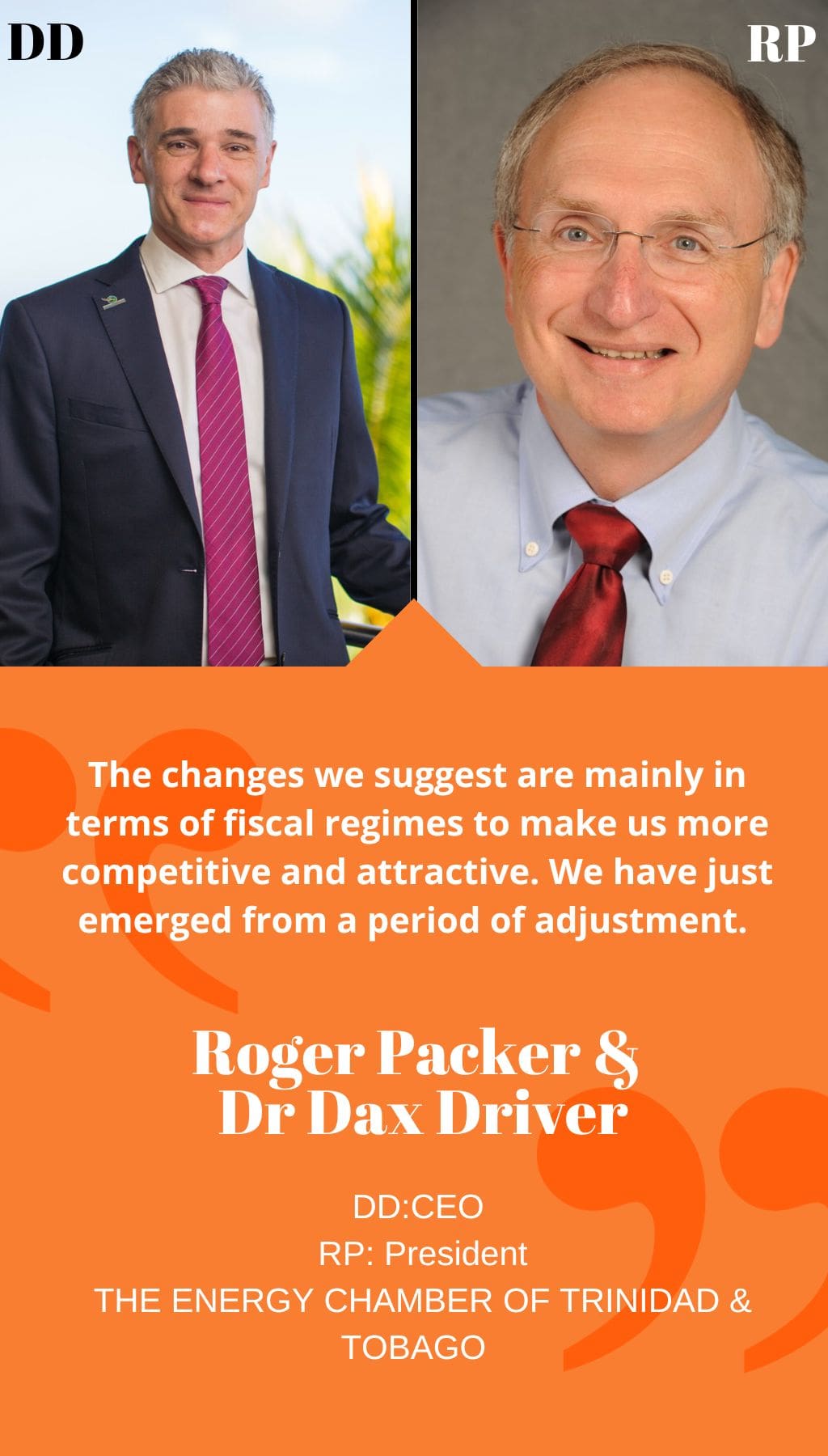
- Trinidad & Tobago | 12 April 2013

Can you explain the mission and goals of The Energy Chamber of Trinidad and Tobago?
RP: The Energy Chamber was founded in 1956 with the mission of advancing the development of industry in South Trinidad. The South Trinidad Chamber of Commerce was created, and they developed the Point Lisas Industrial Estate, which is one of the major achievements of the Chamber. Today, our focus has shifted to encompass the energy industry as a whole, and we are actively engaged in encouraging foreign investment and new players to enter the market. Our goals include energy investment and diversification of the sector into downstream products and the export of services. We aim to be the Energy Chamber of the entire region, and we have been doing outreach into the wider region, particularly in Suriname and to a lesser extent into Guyana, Cuba, and elsewhere.
DD: We have 350 members ranging from major multinationals to smaller local service companies and “mom-and-pop” contractors working around the Point Lisas estate. Our goal is to eventually be the Energy Chamber of the entire region. We have non-energy members as well from various sectors such as law and finance services.
Can you discuss the changes to the fiscal regime suggested to the government, and are they related to the energy industry?
RP: The changes we suggest are mainly in terms of fiscal regimes to make us more competitive and attractive. We have just emerged from a period of adjustment. A fiscal regime should always be responsive to changing global patterns. We have to be constantly looking at it and comparing ourselves to the rest of the world. We have made adjustments in the past two years that have led to a resurgence in activity, especially in the area of oil. We have seen a complete turnaround there and are seeing something similar in the area of gas at the moment. This recent bid round goes to show that people are interested again. We have to make sure the standards in our industry are the best in the world; this is the way to give international operators the assurance that they can work safely and effectively in our country.
DD: The thing to bear in mind with Trinidad & Tobago is the various operating environments we have in one small place. You have people with very mature assets onshore or with frontier exploration acreage in deepwater. You have to have a fiscal regime which takes into account the issues facing these particular environments. We fell behind in the mid-2000s but we have made some changes and are becoming more successful. In particular, there have been changes to the structure of production-sharing contracts for the deepwater bid rounds.
Where has investment interest come from?
RP: We have had investment from all over; majors from the US, Canada, the UK and even interest from the state oil company of Azerbaijan and a mining company from Israel as part of the consortium that took part in the recent bidding round. The interesting thing about the Trinidadian market is that on such a small island, you have a cross-section of very big players and very small players.
DD: In the downstream sector, we have had interest recently from the Chinese, the Saudis, the Japanese and the Germans. We did not see much interest from other Asian companies apart from Azerbaijan and China.
Is there an opportunity for local companies to take the lead in the industry?
DD: There are a number of initiatives we are working on to enhance the ability and presence of local companies. Two flagship initiatives that we have are the creation of uniform health and safety requirements and creating competency certification standards. Local companies have to meet high specifications to work with multinationals, so we decided to make one clear and transparent standard across the industry, which is a big step forward. We are also working with the National Training Agency to ensure that we have the systems in place to certify the competency of our workforce.














